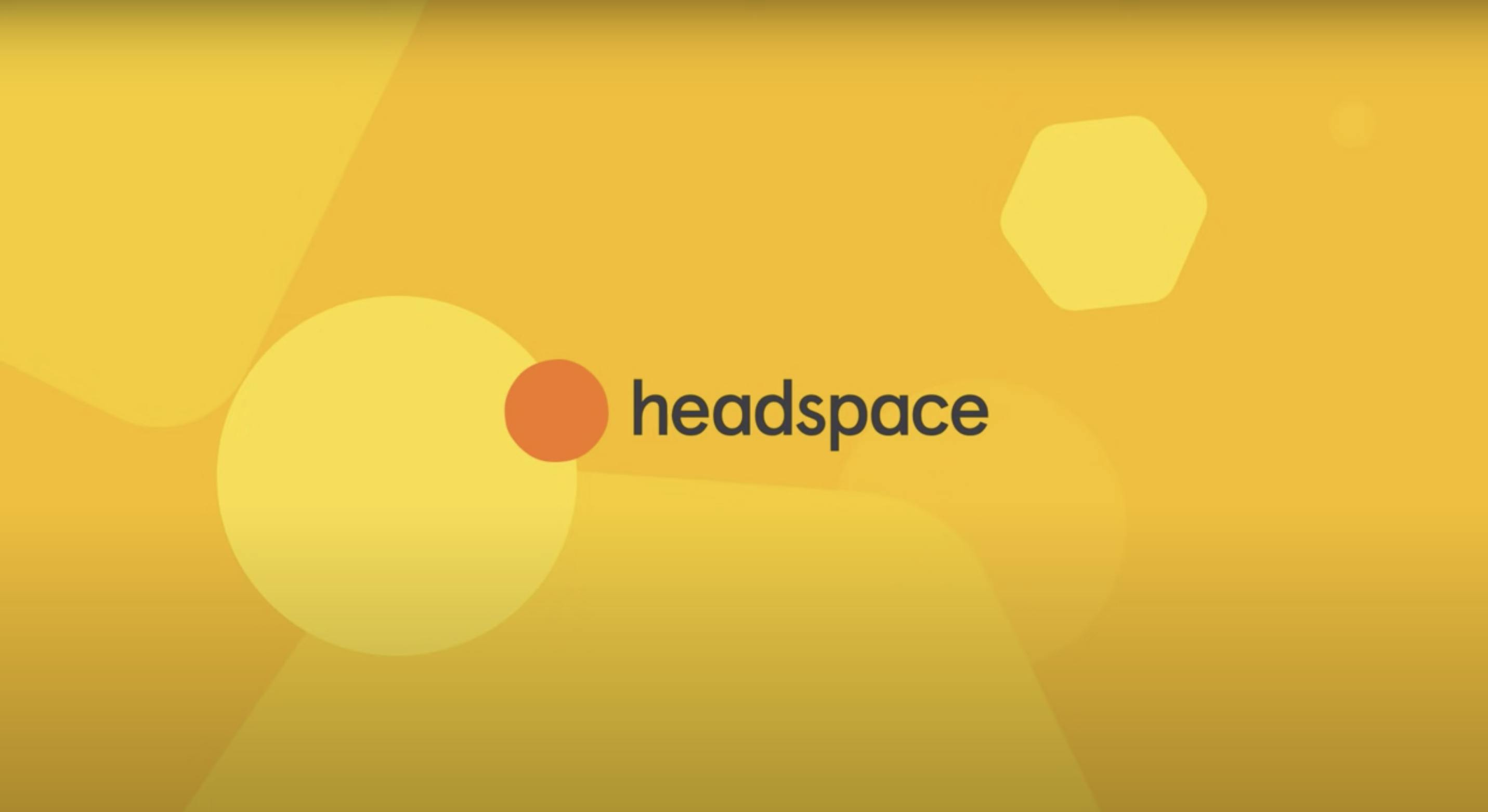How to deal with the holiday blues
By Your Headspace Mindfulness & Meditation Experts
Nov 7, 2023
The holidays are hard for some of us. Because the season focuses on togetherness and joy, it can resurface and exacerbate uncomfortable feelings that we’ve been managing or struggling with during the year. Festivities often serve to magnify our stress, emotions, and difficulties. It’s why the holiday blues can be so challenging.
We might be extra stressed about complex family dynamics or finances, or we might be going through deep grief for a loved one we’ve lost, or dealing with heartbreak over a recent breakup. Perhaps we’re alone for the holidays and feeling isolated.
Whatever the reason, the holiday blues can feel painfully real to a lot of people. While the commercial culture that surrounds us may make it seem unusual to feel less than merry, it doesn’t reflect how a majority of people actually experience the season. According to a 2015 survey, 64% of people say they are affected by the holiday blues, with 24% saying they are highly affected.
For those of us who can relate, it may feel frustrating or overwhelming for emotions to swell during the bustling fall and winter months. Rather than trying to put on a happy face, we can always turn to meditation and mindfulness to help us sit with our discomfort. That might sound counterintuitive at first, but leaning in to our feelings — learning to acknowledge them without getting caught up in them — is one way to bring warm hues to our holiday blues.

Reset: Decompress Your Body and Mind
10 minutes
What are the holiday blues?
While the holiday blues isn’t recognized as an official psychiatric condition, it’s widely considered to describe feelings of sadness experienced during the holiday season, often sparked by loneliness, stress, anxiety, or grief. For some, the blues may be experienced throughout November and December. For others, the feeling may come and go. Even those who typically love this time of year may find themselves with a case of holiday sadness from time to time.
It can sometimes be difficult to differentiate the holiday blues from more serious mental health concerns. Experts note that the feelings associated with holiday blues will typically only last for a few weeks, alleviating once the festivities end, if not before, whereas clinical conditions like anxiety and depression tend to persist. If these feelings continue beyond the holiday season, or if these feelings recur each season (instead of experiencing one-time symptoms), it’s recommended to consult with a healthcare professional.
What causes the holiday blues is highly personal. According to an early paper on the topic, there are thought to be 3 common triggers: the season’s social demands, biological stressors, and unmet expectations.
While we might be unable to avoid these common triggers, we can ease the holiday blues whenever they may occur with simple techniques grounded in mindfulness.
Mindfulness to ease the holiday blues
“When we feel sad, it can be a very lonely place, very isolating, and so we often feel very stuck,” says Headspace co-founder and former Buddhist monk, Andy Puddicombe. “It can feel very frustrating. We don’t want to feel the way we feel and yet it’s as though we just can’t help it.”
Often when we experience these emotions, we look for a distraction or try to bury them deep down inside. It’s understandable why we would want to escape such challenging emotions, but these emotions all too often catch up with us in the end. So what if we learned how to navigate them in a more productive, more mindful way?
Let’s try doing just that with the 3 common triggers for the holiday blues.
- The season’s social demands.
This time of year tends to be jam-packed with parties, family get-togethers, and other social obligations. If these occasions bring feelings of anxiety, stress, or sadness, then being aware of this ahead of time allows us to establish clear boundaries.
This might mean we decline some invitations without guilt. Additionally, we might try building some downtime into our holiday calendar, providing us dedicated time to reset and recharge before giving into any further social demands. Mindfulness in this context is about understanding our own needs, and then taking steps to protect our space and best interests.
- Biological stressors.
This is a season centered around giving and, as a result, we often put our well-being last. But how can we show up for others if we don’t show up for ourselves? If we find our holiday blues are often triggered by feeling mentally or physically exhausted, we might try implementing small acts of self-care into our routine.
For example, if sleep is a struggle this time of year, maybe we turn our attention to improving our sleep hygiene, like turning screens off an hour before bed and see if that helps. When we feel holiday stress creeping in, maybe make it a priority to take a 10-minute break every day to meditate — meditation gives us a chance to retreat, breathe, and calm the mind. And if we feel like we’re on the precipice of holiday burnout, we could practice asking for help from a friend or a loved one.
The merriment of the season has also impacted how many consume alcohol. While attending gathering after gathering, drinking during the holidays can become excessive — just like our enjoyment of festive food and treats — and there’s no question this behavior increases our biological stress.
To manage it, we might apply the principles of mindfulness to what we choose to eat and drink this season; to be fully aware of what’s on our plates and in our cups, engaging the senses with each bite and sip, and staying in tune with how full or well we feel. When we practice mindful eating, that awareness can help us enjoy a judgment-free night of hot cocoa and cookies while knowing the body will need something nourishing to help us stay healthy. Staying active can also help us manage this biological stressor (along with many others).
- Unmet expectations.
Throughout the holiday season, we’re constantly managing expectations — our own expectations as well as expectations from the people around us. Maybe we feel pressured to keep a family tradition alive just as another family did before us, or we feel like we need to create a holiday feast as lavish as what’s pictured in the movies.
Or maybe we simply had an idea of how a certain event would go (the kids are going to love meeting Santa) and it ended differently (the kids screamed and cried on Santa’s knee). When attached to expectations, we understandably feel disappointed when they’re not met.
For so many of us, the expectations and the standards we set for ourselves feel set in stone. But it’s important to remember that, at one point, expectations started as nothing more than a thought. We developed it, we cultivated it, and it turned into something bigger. “Maybe it doesn’t even really reflect how you honestly feel or what’s happening in the world around you,” Andy says. “The storyline in our mind is often very different from the reality we’re experiencing.”
When we meditate, we learn to let go of our thoughts … and our expectations. How?
Because we train the mind to be more present; we learn to allow things to simply unfold, without being attached to any kind of outcome. Ultimately, the mind becomes okay in the face of uncertainty. When things don’t go to plan, we have a new, less rigid perspective, and we remain cool, calm, and collected.
Try 10 meditations for the holiday blues
Looking for more meditations for holiday sadness? The Headspace app offers members several courses and single meditations on the holiday blues, including:
Learn to let go of resistance and find acceptance not just toward your own thoughts and feelings, but also other people and difficult situations.
Learn to understand what it means to be lonely and how you can feel more connected to the world around you.
Start seeing your thoughts with a new perspective so you can learn to let them go.
Train your mind to experience a greater sense of flow and be more comfortable with change.
Develop a more playful attitude toward life and begin to understand how your own happiness impacts others.
Cultivate a new perspective on fear and anxiety.
Bring a moment of calm and clarity to your day with a body scan meditation for stress relief.
Explore ways to see finances with compassion and learn helpful tips from a financial wellness expert.
Find a greater sense of gratitude for yourself, your health, and the people in your life.
Give yourself a little space when you’re feeling overwhelmed.
It’s not always easy to look after one’s mental health during the holidays. This whirlwind of a time can be riddled with certain expectations about how we think we’re supposed to act and feel. And when our emotions and thoughts don’t align, it can feel stressful or disappointing. But should this arise, mindfulness can be a powerful and effective way to navigate both our expectations and emotions, helping us to find acceptance in how we feel while learning how to handle all the ups and downs that the holiday season throws our way.
"Mindfulness can be a powerful and effective way to navigate both our expectations and emotions."

Key takeaways
-
The holiday blues is temporary feelings of sadness experienced during the holiday season
-
Meditation may make it easier to balance our mental health and the holidays by teaching us how to navigate difficult emotions and manage expectations
-
Try 10 meditations for the holiday blues


Be kind to your mind
- Access the full library of 500+ meditations on everything from stress, to resilience, to compassion
- Put your mind to bed with sleep sounds, music, and wind-down exercises
- Make mindfulness a part of your daily routine with tension-releasing workouts, relaxing yoga, Focus music playlists, and more

Similar articles

Stay in the loop
Be the first to get updates on our latest content, special offers, and new features.
By signing up, you’re agreeing to receive marketing emails from Headspace. You can unsubscribe at any time. For more details, check out our Privacy Policy.
- © 2026 Headspace Inc.
- Terms & conditions
- Privacy policy
- Consumer Health Data
- Your privacy choices
- CA Privacy Notice








